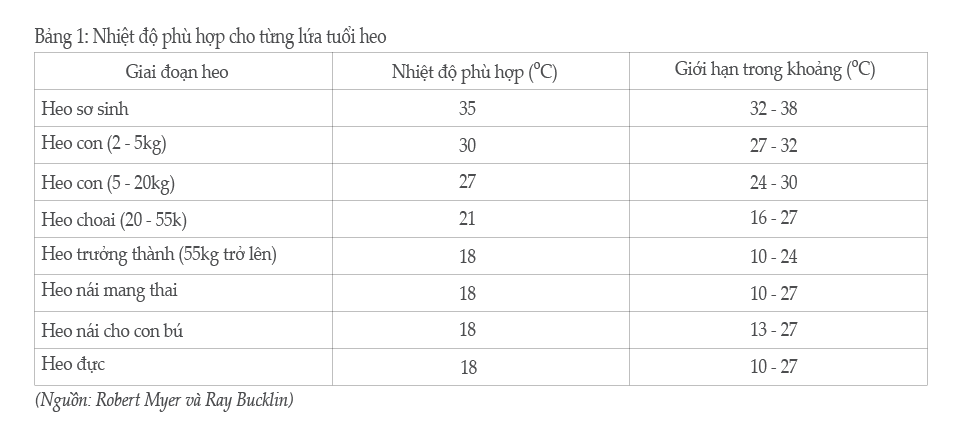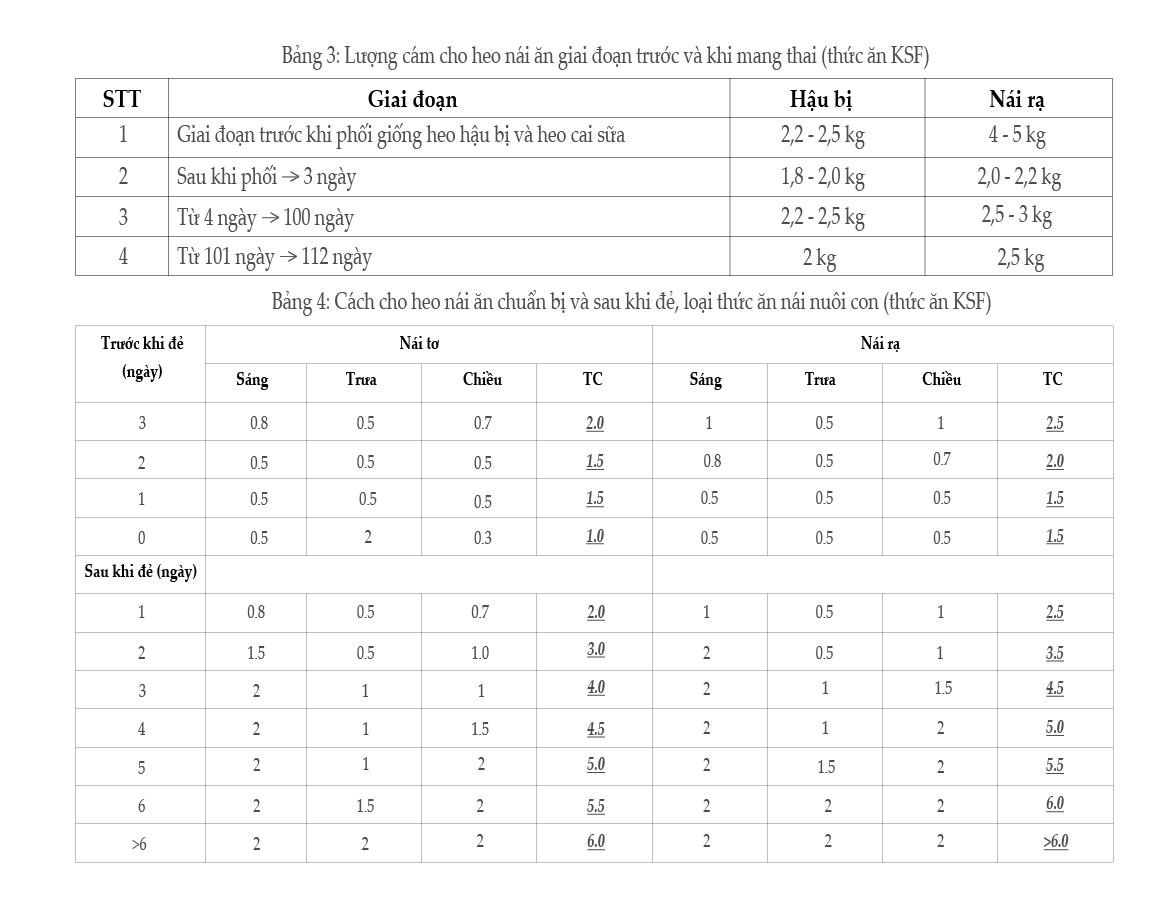Some people refer to the sow as the "money printer" of the pig industry. The care of sows requires strict technical compliance. Especially in the hot season, high temperatures will cause great stress on livestock herds, reducing reproductive productivity, affecting productivity of the whole livestock farm. Therefore, in order for the sow farm to achieve optimal performance, we need to apply appropriate care measures during the hot weather.
Why are pigs so sensitive to heat stress? Most animals respond defensively to elevated environmental temperatures by sweating and gasping for breath, steam released by sweat, and breath carrying heat that lowers the body temperature.
However, the sweat glands in the pig skin are mostly degenerated, so the ability of the pig to drain heat by sweating is almost impossible. Pigs only have ways to increase respiration rate to escape heat by breathing. Clear signs of heat stress are increased breathing, red skin, and loss of appetite when a pig is under heat. If the ambient temperature continues to rise, pigs drink more water and the blood is acidified, leading to death in severe cases.

The effects of heat stress in sows
Effects of high temperature on gilts, dry sows, and gilts
Heat stress has an adverse effect on sow fertility. If the temperature is higher than 27oC, it will slow or stop the sow's oestrus, reduce conception rate and increase early embryonic mortality.
During fertilization and embryo positioning (the first 13 days of pregnancy) can reduce embryo survival by 30 - 40% (Curtis 1981).
- If heat stress occurs a few weeks before farrowing will lead to an increase in stillbirth and possibly sow death.

Effects of high temperature on suckling sows
Nursing sows have very high nutritional requirements to ensure adequate milk secretion for piglets. If there is a lack of nutrition, the pig will mobilize the body's nutrition. Example: A sow raising 10 piglets will produce on average 2.5 - 3 liters of milk / day. To produce this amount of milk, pigs need to consume an average of 5.5 kg / day of feed. It is observed that when the temperature is higher than 25 ° C, the pig reduces appetite, reduced feed intake leads to reduced milk yield, reduced weaning weight and increased sow body wasting. The level will slow the sow to breed again after weaning, if conception will reduce the number of offspring in the next litter.
Measures to take care of pigs in hot season
Clean the barn
It is advisable to clean the barn thoroughly on hot days because hot temperatures will cause more toxic gas to rise from urine and feces. During this period, pigs are often poorly digested, reducing their resistance to pathogens, so they are more susceptible to disease.
Take care and feed pigs
Pigs can be bathed 1-2 times / day to keep the sow moist and cool.
Note that when holding piglets with the mother, keep the heat source away from the sow head or have a separate brood to help reduce the temperature of the sow area.
Note how to feed:
- Food during hot season must increase the amount of nutrients to meet the needs of the pig even though the pig eats less.
- Supplement amino acids, vitamins C, E, as well as minerals for pigs.
- Keeping food always new, because when the weather is hot and humid, it can easily spoil the food, lose its fragrance, reduce appetite as well as reduce quality.
- Pigs can be given liquid feed to make them easier to eat.
- Feeding pigs more often, feeding pigs many small meals / day will help pigs eat more food, priority is given in the early morning or evening and at night, this will help pigs reduce the amount of heat emitted when consumed. Chemical feed and reduce the amount of heat the pig needs to dissipate.
Prepare the barn
- The best direction of the barn is East - West to avoid direct sunlight on the barn.
- The roof of the barn is designed to be tall, well ventilated, to avoid rains (from 2.8 to 3m from the ground surface), the roofing material is not too hot, so there should be a screen or an insulation sheet.
- The barn foundation is made of concrete and has a slope of about 2 - 2.5%.
- It is possible to install a ventilation fan, the height of the fan is on the back of the pig to reduce heat and toxic gases such as CO2, NH3 in the barn. The best is the closed cage system with an exhaust fan system and a cooling pad for air cooling.
- On hot days, arrange a rain spray system on the roof of the barn to increase cooling efficiency, but pay attention to ventilation and drainage to reduce high humidity in the barn.
- The outer wall surface should be painted or whitewashed to limit solar radiation.

Water
- Water is an important nutrient that we must provide enough for pigs. During hot weather, the pig's water demand increases significantly. If the water temperature is hot, the pig does not drink enough water, the amount of feed intake will decrease.
- Ensure water pressure is at least 1L / min and ideally 2L / min. Note that the minimum height of the drinking water tank is 3m above the floor to have good water pressure.
- The height of a suitable drinking nipple is about 0.75m so that the pig can drink easily.
- Water temperature is very important, cool water will help pigs drink more than hot water. There should be a roof to cool the drinking water tank and the piping system because the hot sun raises the water temperature.
